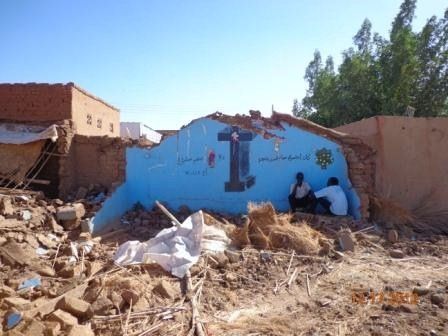Sudanese repatriation

On the morning of Tuesday 18 December, a convoy of 33 buses and 35 trucks left Khartoum, taking some 1500 people and all their worldly possessions ‘home’ to South Sudan.
For some of them, depending on which part they were going to, this was to be a four-day journey. I say ‘home’, but, although these folks are Southern Sudanese, many have never lived there or even seen the South. Yet, it is undoubtedly home for them and they were overjoyed to be leaving an increasingly hostile and difficult North.
Around a quarter of a million Southern Sudanese, many of whom are our Christian brothers and sisters, remain stranded in refugee settlements around the edge of Khartoum, the capital of North Sudan.
They have been ordered to leave the country, because of the secession of South Sudan, but have not been given the necessary documentation and don’t have the finances to travel. They have been in this situation for many months.
Our partner church, Africa Inland Church–Sudan (AIC-S), had a vision of repatriating as many of these people as possible, and, with the generous and financial support of Barnabas Fund, we have been able to make a small inroad into this huge problem.
Stranded people
So far, 2000 people in all have been repatriated — 500 by air and 1500 by road — and there was finance in place to move another 1500 people by road in the New Year. We and the church are prayerful that yet more than that will be able to be moved, although that still leaves tens of thousands of people stranded in dire circumstances in Khartoum.
Even while representatives of the Khartoum government were attending and celebrating the send-off of the returnees, praising the vision and commitment of the church, a bulldozer, accompanied by 50 police officers, arrived at the AIC-S church building in the Dar al Salaam district of Khartoum and without warning proceeded to destroy it.
This used to be a fairly common occurrence during the years of war, but it hasn’t happened for some time and is a disturbing development, for which the church leaders are trying to get some answers.
Now we have heard of the destruction of another church building in the Soba refugee settlement, along with a church-run medical facility. These buildings and ministries, though simple and basic by western standards, represent sacrificial commitments by the Lord’s people, who refuse to be bowed by the intensifying harassment of the Islamic authorities.
There is more information about the repatriation project at www.friendsofsudan.net and donations can be sent to Barnabas Fund
John D. Brand










